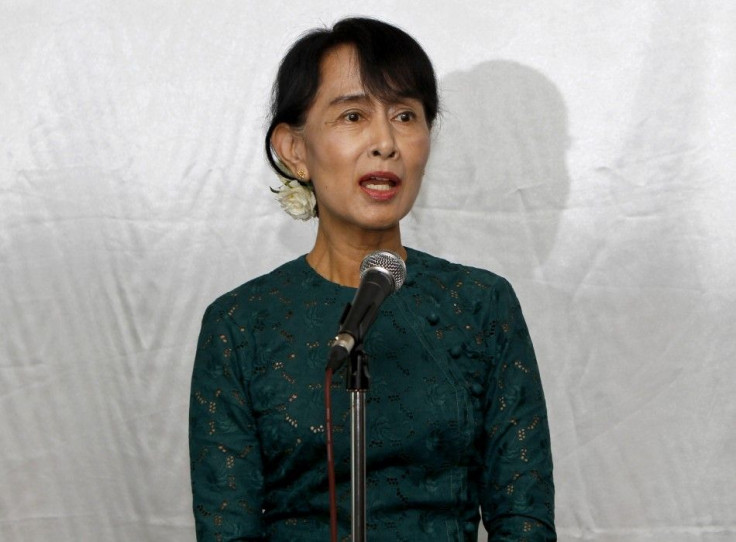U.S. To Suspend Some Restrictions On Investing In Myanmar

The U.S. government will lift its sanctions on investing in Myanmar, but will keep the prohibition in the books to guarantee against the southeastern Asian nation from backsliding on its democratic reforms.
Secretary of State Hillary Clinton, in a public appearance with Myanmar's Foreign Minister Wunna Maung Lwin, told reporters that the U.S. will begin to issue licenses to allow investments in the country, but maintain the arms embargo -- meaning American companies still cannot do any business with the Burmese military, which still remains a powerful force in the country.
“The Burmese government has made progress in a number of areas including releasing hundreds of political prisoners, pursuing cease-fire talks with several armed ethnic groups and pursuing a substantive dialogue with Burma’s leading pro-democracy opposition party,” read the White House notification signed by President Barack Obama.
“But the political opening is nascent, and we continue to have concerns, including remaining political prisoners, ongoing conflict and serious human rights abuses in ethnic areas.”
Western nations have gradually been expanding relations with Myanmar as the Southeast Asian country, more commonly known as Burma, has enacted a number of reforms, including holding a relatively free parliamentary election last month, the release of hundreds of political prisoners and some relaxations on media control.
Great Britain and Canada have already eased some sanctions against Burma.
Myanmar is only now opening up to the outside world after being ruled by a repressive military regime for the past half-century.
However, some U.S. politicians, including Senator John McCain, as well as Burmese human rights activist Aung San Suu Kyi, have urged a cautious stance on Burma since it’s not guaranteed that the Burmese military will continue to relinquish its power and influence in the country.
“This is a possible first step,” Suu Kyi said in a video teleconference call held earlier this week by former president George W. Bush.
“I am not against the suspension of sanctions as long as the people of the United States think this is the right thing to do at the moment.”
Separately, The White House nominated Derek Mitchell, the current special envoy to Myanmar, to become a full-fledged ambassador. If approved by the senate, he will be the first U.S. ambassador to Myanmar since 1990.
© Copyright IBTimes 2025. All rights reserved.





















